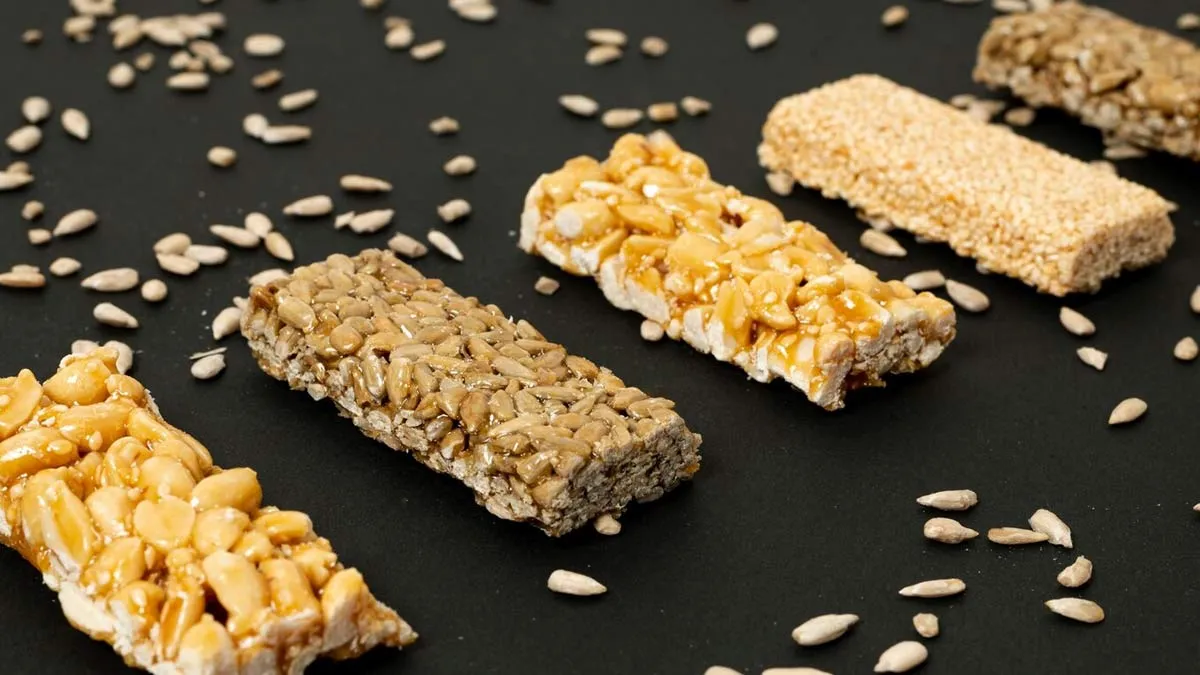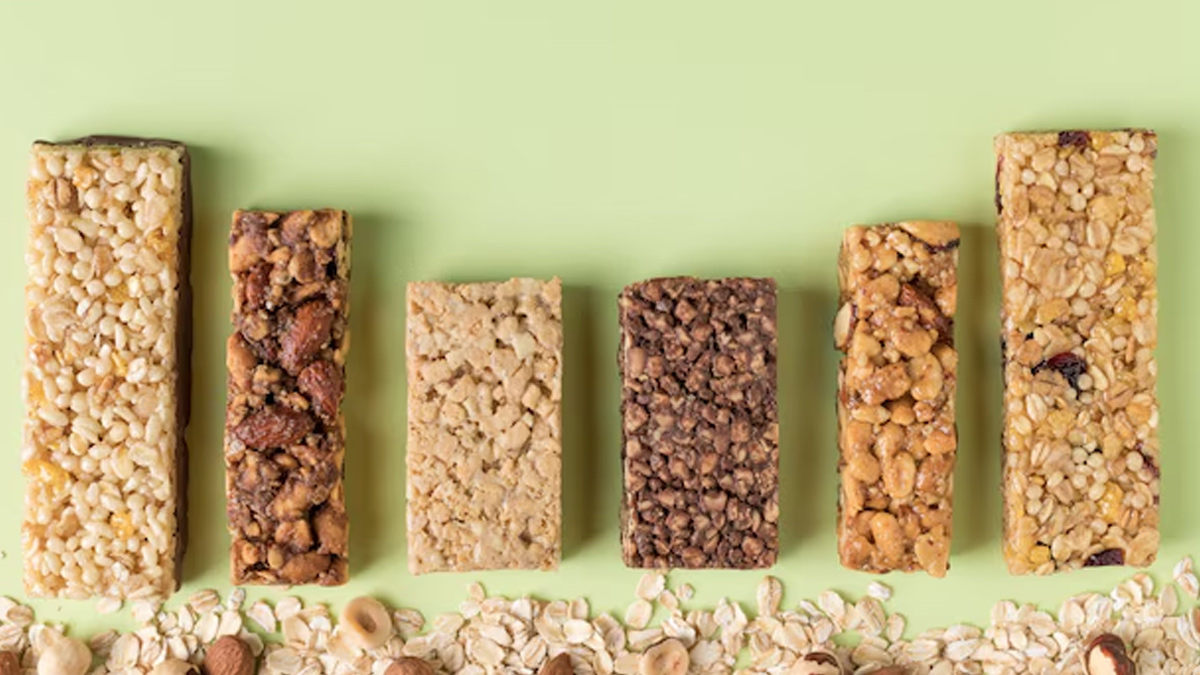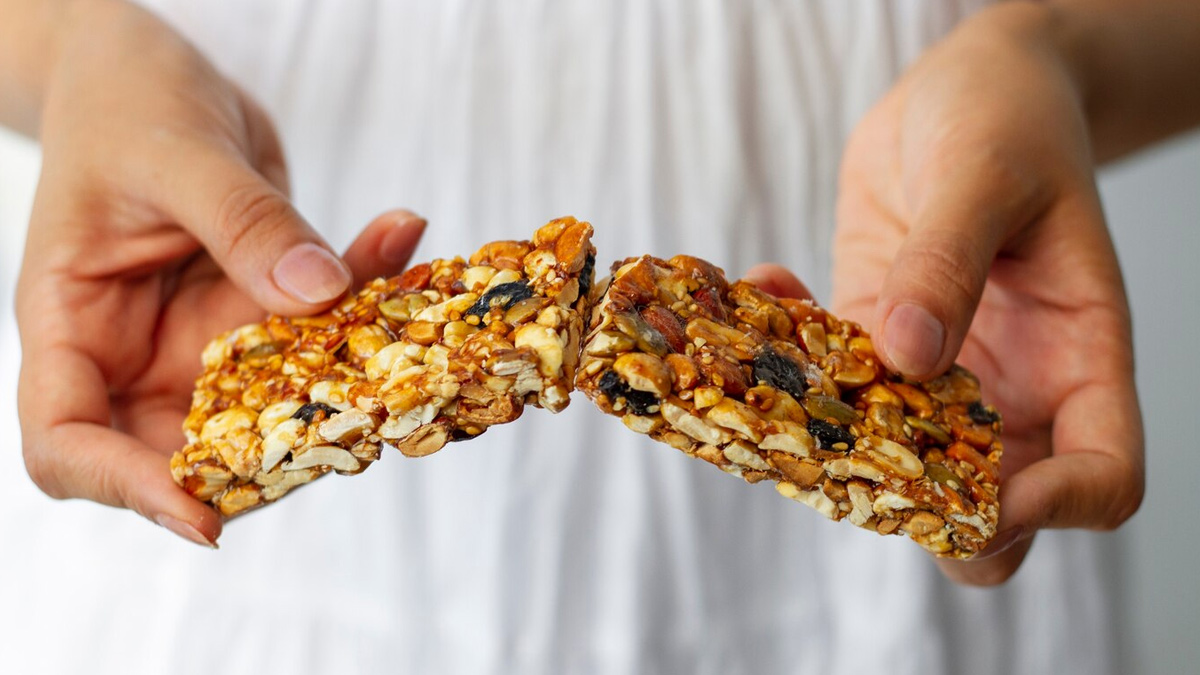
Over the years, packaged foods have become your go-to options for quick and convenient meals. They claim to be safe, rich in nutrients, and great for weight loss – everything one would want to hear. But do they really deliver what they promise?
Table of Content:-
Now, we even have proteins packed in a bar. Protein bars are marketed as the perfect snack for people on the go. But again, are they really as good for you as they sound? Or just another health hazard in disguise? Here’s what an expert had to say to us.
Also Read: Are Protein Bars Actually Good For Health? Explains Nutritionist Swati Bathwal
What Protein Bars Can Do?

Protein bars are an easy and convenient source of protein and calories that claim to keep your energy high. Some protein bars even claim to aid your weight loss journey while maintaining your fitness level.
But here's what protein bars really can do and what the other considerations are to make.
According to Sujatha Stephen, Chief Dietician, Yashoda Hospitals, Hyderabad, protein bars are an easy snack that can give you energy (carbohydrates), help build muscles (protein), and provide vitamins and minerals. "They can also help you feel full, boost your workout, or aid recovery after exercise."
However, they’re not as healthy or nutritious as whole, natural foods, highlights Stephen. "Protein bars give you a lot of protein, but they often miss other key nutrients your body needs. Unlike a balanced meal, they usually don’t keep you full for long. Many are also packed with sugar, sometimes as much as a soda or candy bar. Even if they’re high in protein, whole foods like meats, eggs, or beans are still the healthier choice because they give you better nutrition overall," she explains.
Are Protein Bars Really That Healthy?

“Some protein bars are truly healthy, with good ingredients that fuel your body,” shares Stephen. But many are just junk food in disguise, such as those loaded with sugar (like syrup, honey, or corn syrup) and bad fats (like soybean oil or margarine), she also noted. “If your bar has these, it’s basically a candy bar pretending to be healthy.”
It is also important to understand that protein bars are made with different ingredients and are created for varying purposes. For example, some protein bars are made for weight gain, which is why they can be higher in calories and macronutrients. Others may be marketed for weight loss or meal replacement and contain fewer calories but are rich in fibre and protein to keep you full for longer. There are also protein bars formulated specifically for athletes, with added electrolytes or performance-boosting ingredients.
Researchers involved in a 2021 study published in the journal Foods created a high-protein bar using whey and soy protein, oats, inulin, and essential nutrients to support recovery in athletes. When tested on professional handball players, the bar not only tasted good but also showed real benefits, reducing muscle damage markers and boosting the body’s antioxidant response.
However, it was noted that they’re not ideal for everyone. Such bars are formulated for highly active individuals, so their high protein and creatine content may be unnecessary or even excessive for the average person. They also contain additives like preservatives, and despite added fibre sources like oats and inulin, their overall fibre content remains modest.
This is why reading the label is crucial, and always consider your personal health goals.
Also Read: Top 10 Foods For Your Ageing Muscles
What To Look For In A Protein Bar Label?

To choose a healthy protein bar, Stephen recommends checking the sugar, protein, and calorie content first. But don’t stop there; take a look at the ingredients list too. “A good rule of thumb is that if the bar has only 6-10 ingredients, mostly real foods you recognise, it’s likely a healthier choice. Ideally, pick bars with high-quality whey protein, added fibre, and heart-healthy fats like almond butter, chia seeds, or flax seeds. Also, make sure no more than 35% of the calories come from fat. This way, you’ll get a convenient snack that’s actually good for you,” she shares.
Regular Consumption Not Recommended
While protein bars may provide various health benefits, moderation is key. Even if you opt for protein bars that suit your health best, eating too many can overload your kidneys and liver with excess protein, potentially causing health problems over time, warns Stephen.
She adds, “Many bars are also packed with added sugars or artificial sweeteners that can mess with your blood sugar, increase cravings, and harm your gut health. Some people experience bloating, gas, or stomach discomfort from the high fibre or sugar alcohols in these bars.”
For the healthiest approach, enjoy protein bars in moderation and focus on getting most of your protein from whole foods like lean meats, eggs, and beans. These natural options give your body better nutrition without the unwanted side effects.
Conclusion
Protein bars can feel like a convenient snack option. However, they need to be consumed in moderation and chosen according to one's fitness goals and health status. As dietician Stephen explains, many are loaded with sugars, additives, or unnecessary ingredients that don’t really do your body any favours. That’s why it’s so important to check the label and choose a bar that actually fits your needs. Think of them as a backup, not a replacement for real, wholesome meals.
Also watch this video
How we keep this article up to date:
We work with experts and keep a close eye on the latest in health and wellness. Whenever there is a new research or helpful information, we update our articles with accurate and useful advice.
Current Version